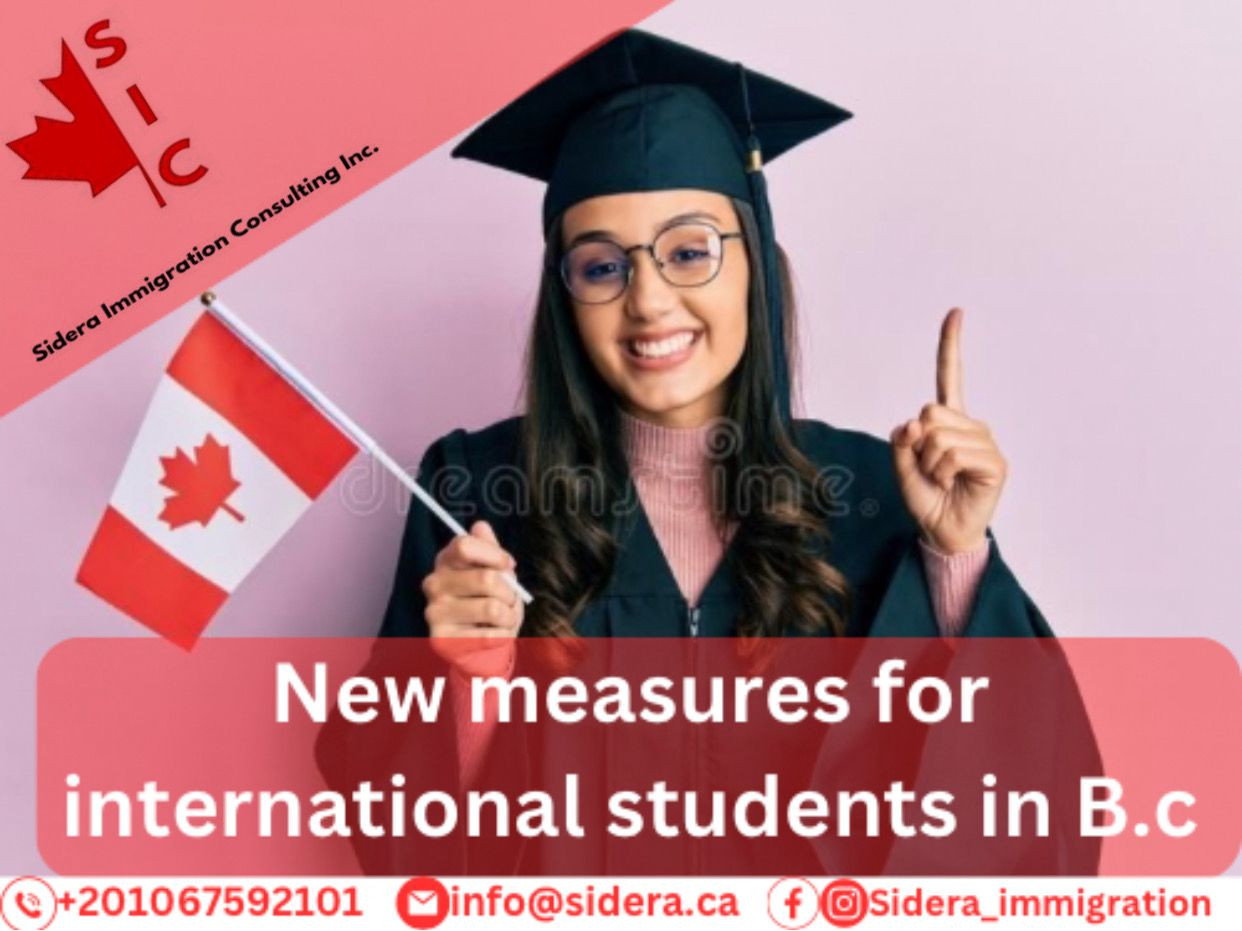

 102 El Merghany Street,Heliopolis,Cairo, Egypt 4th Floor, Office# 401
102 El Merghany Street,Heliopolis,Cairo, Egypt 4th Floor, Office# 401
 1555 Boulevard de l'Avenir, Bureau 306,H7S 2N5, Laval, Québec, Canada
1555 Boulevard de l'Avenir, Bureau 306,H7S 2N5, Laval, Québec, Canada

2024-01-31
On January 29, 2024, the Canadian province of British Columbia announced a set of new initiatives aimed at improving the experience of international students in canada and enhancing the quality standards in higher education.
These measures also seek to increase accountability for educational institutions in the province.
The announcement followed the imposition of restrictions by Immigration Minister Marc Miller on January 22, with the goal of reducing the influx of new international students to Canada.
Ontario also introduced similar measures on January 28 to enhance the international student experience in the country.
British Columbia's new measures for international students include a temporary ban on the expansion of institutions offering foreign education.
The province has implemented a two-year prohibition on new education quality assurance certifications, lasting until February 2026.
During this period, new institutions will be unable to recruit overseas students, although existing institutions can renew their designations.
Enhanced compliance and enforcement measures will involve more frequent inspections of private postsecondary institutions to ensure adherence to improved quality standards and adequate support for students.
Public postsecondary schools will establish standards for maximum international student enrollment, tuition transparency, and student support.
Public institutions will also develop and implement international education strategic plans to guide their efforts.
Private degree programs will face higher assessment requirements, including scrutiny of degree quality, alignment with established labor market needs, sufficient resources, and student support.
Organizational standards for private degree-granting institutions will demand capabilities in enrollment planning, governance, facilities, faculty and staff, diversity, and anti-racism regulations.
The criteria governing private degree-granting institutions will undergo changes, including a more rigorous examination process for new degree proposals and stricter standards for new degree programs.
Additionally, the province will establish minimal language requirements for private training institutes to better prepare new international students for their educational and professional journeys in British Columbia.
Public postsecondary schools will be mandated to disclose tuition amounts throughout students' studies to ensure transparency and provide incoming students with a comprehensive understanding of the full cost of their education.
Selina Robinson, Minister of Post-Secondary Education and Future Skills, emphasized the importance of protecting international students from exploitation and ensuring a better path to success.
She stated that these stringent requirements and robust safeguards aim to attract talented students needed to address significant gaps in the labor market and drive the province's economy forward.